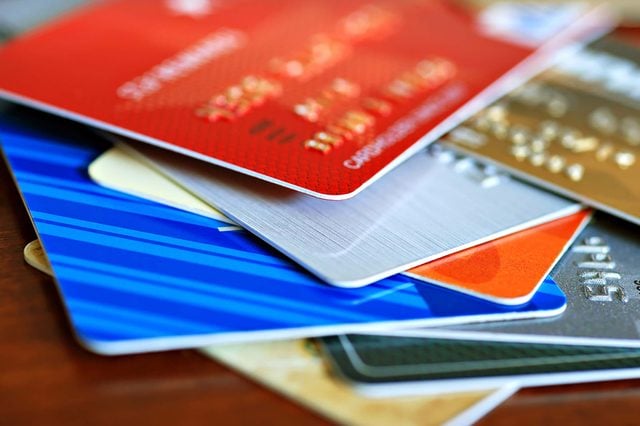
What’s wrong with debit?
Debit might seem great because there’s no chance of spending more than you have or risking steep overdraft fees, but the stakes are also higher when it comes to fraud. For one thing, debit cards take cash straight from your bank account, while credit cards give you time to look at your charges. “A credit card is more like a loan,” says Mason Wilder, research specialist at the Association of Certified Fraud Examiners. “You have more time to dispute charges before any actual funds of yours go out.” Plus, the Fair Credit Billing Act only leaves you legally liable to up to $50 on a credit card, and the four major credit card companies all have zero liability, says credit expert John Ulzheimer, president of The Ulzheimer Group. If you are a victim of debit card fraud, though, you could be out up to $500—especially if you swipe at these risky places. Here’s why debit cards are just one of the many things you should never, ever keep in your purse.
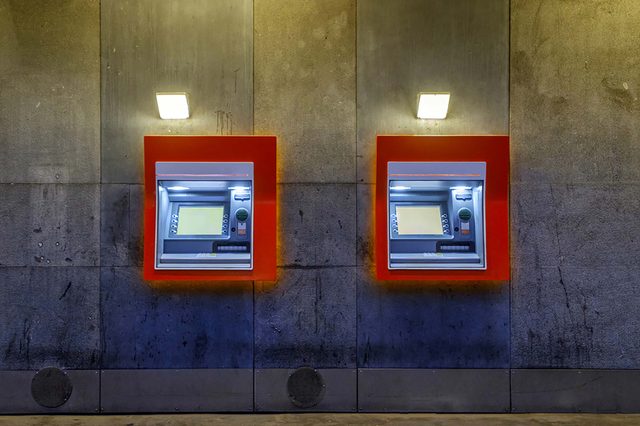
At independent ATMs
Thieves use all sorts of tricks to steal your identity. Sometimes, they sneak devices called skimmers into ATMs to steal your information when you stick your card in. If you do need to get cash, your best bet is to go inside a bank instead of finding one on the street or in a convenience store, says Wilder. Officers and security cameras keep a watchful eye at banks, but there’s no guarantee an ATM with less security is a prime spot for thieves. “Even if it’s not your bank, you’re at a lower risk for fraud,” says Wilder. “If you have to pay a fee anyway, it’s safer to use a bank’s.”
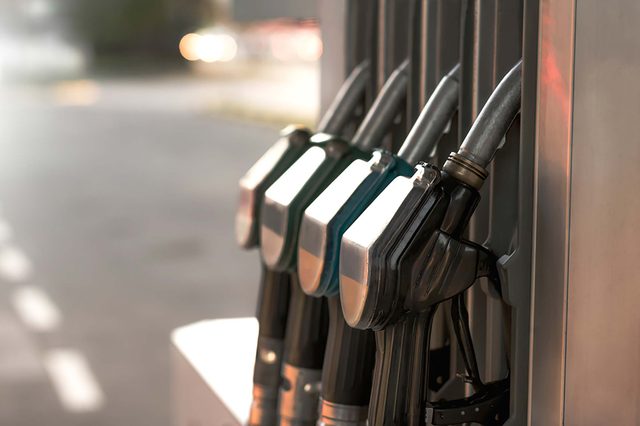
At gas stations
You swipe your card before filling your tank at pay-at-the-pump stations, so the gas station doesn’t know what your final bill will be. Because gas stations don’t have anyone watching the card reader, they’re a prime spot for fraudsters to plant a skimmer, says Wilder. To protect themselves, gas stations pre-authorize the maximum they’d expect customers to pay for gas—up to $100, says Ulzheimer. That cash doesn’t leave your account, but it is put on hold so you can’t use the money to pay until the station deals with your bill. “The final transaction has to clear, and that might take a day or two,” says Ulzheimer. Yet without all the same protections as credit cards, debit is an even riskier way to pay with card. Make sure you know the 10 times you should never pay with a credit card.
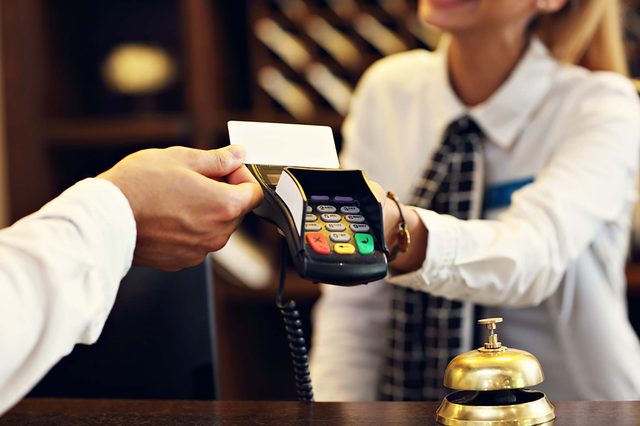
At hotels
When you book a few days at a hotel, you aren’t just paying for that night. The hotel will pre-authorize enough money to cover your whole stay, plus an extra deposit in case there are any damages. That money is put on hold, so even though it’s still in your account, you can’t use it to pay. Depending on how much money is in the account hooked to your debit card, you might not have enough money to keep swiping during your trip, says Ulzheimer. “On a credit card, it’s less of an issue because you have a high enough credit card limit that you can still use it,” he says.
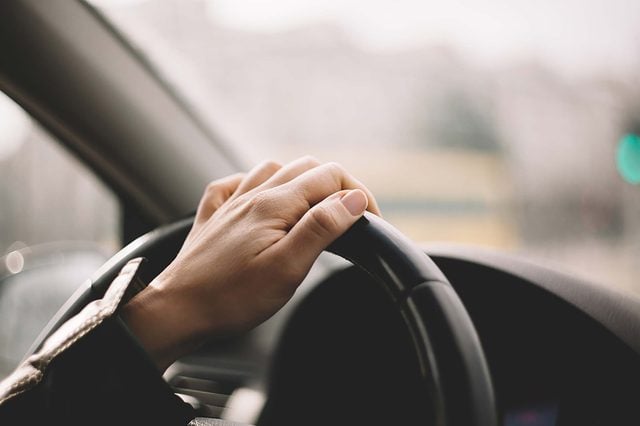
For rental cars
Like hotels, rental car companies put enough money on hold to cover however long you plan to borrow. So while that might not make a difference on a credit card, that means your funds are basically frozen even before you return the card and pay for it, says Ulzheimer. And don’t even think about buying rental car insurance or these 6 other insurance policies that are a total waste of money.
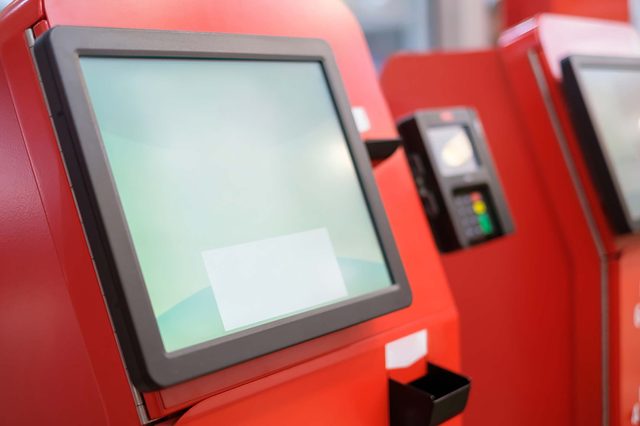
In self-checkout lines
Like gas stations, self-checkout lines don’t have an employee by each card reader. A thief hoping to steal information from grocery store customers would install skimmers in a line far away from the manned register, for instance, in the self-checkout lane, a vending machine, or another unmanned spot. If you can, pay cash in these instances. Otherwise, go through the regular checkout lanes with a credit card. “A criminal won’t try to install a skimmer a foot away from a person,” says Wilder. Even if a thief does capture your information, at least you will have better fraud protection. Here are more convincing reasons to pay in cash.
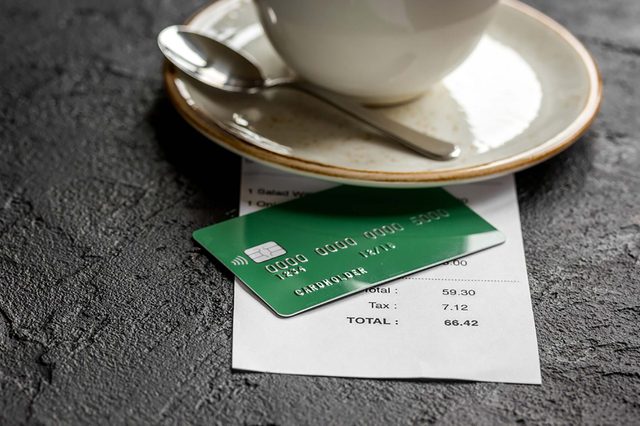
At restaurants
When you pay the bill at a restaurant, you leave the server alone with your card for a bit. “Any…transaction where somebody takes your card and goes somewhere else, that creates more potential for them stealing your information,” says Wilder. If you don’t carry enough cash to pay for a nice dinner out, pay with credit instead. On the off chance an employee is out to steal customers’ information, he or she can’t do too much damage if you ask the bank for your credit back.
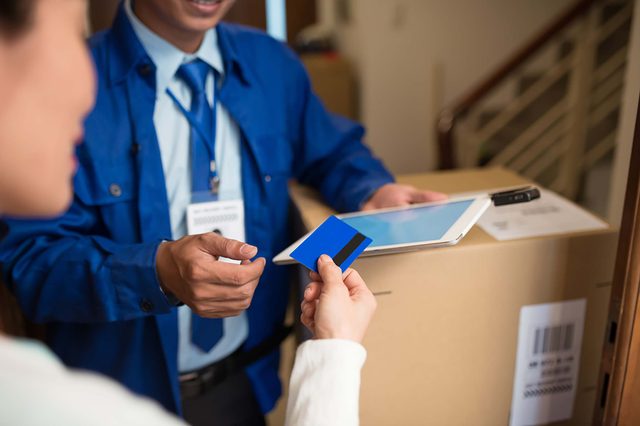
For big-ticket items
Especially if you’re getting an expensive item like furniture or a large appliance delivered, stick with credit.—and definitely don’t swipe your debit card as credit. For all you know, there might be a problem with the item or it will never arrive, says Wilder. “If it’s on a debit card, you have a big chunk of money tied up in the dispute,” he says. A credit card will be more likely to refund you and might even offer a warranty on big-ticket items. As a bonus, Ulzheimer says a major purchase on your credit card means more rewards like cash back or air miles. Don’t miss these 15 amazing credit card perks that actually exist.
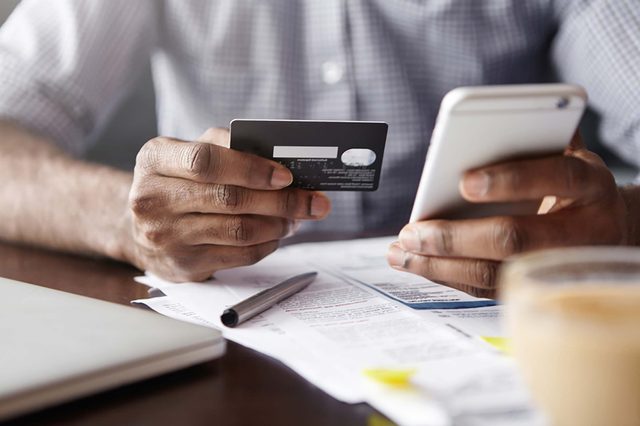
For automatic payments
Stick with credit over debit for recurring payments like a phone bill or gym membership. If your normal bill skyrockets because the company ended a promotion or upped its prices, you’ll have time to work it out before losing money from your account, says Wilder. Plus, mistakes happen and companies sometimes double-bill you, so it’s best to have that on credit than from your bank account, says Ulzheimer. Paying with credit also means you can rack up the rewards. “At least I’m getting something out of it,” he says. “I have to make the purchase anyway.”
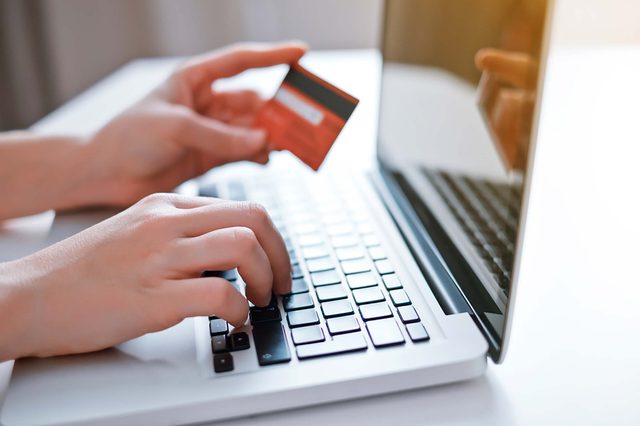
Online
Though there are some things you should never buy online, large online retailers are generally trustworthy with your payment information. But that doesn’t mean your card info is always safe online. “There is no system that’s hack-proof,” says Ulzheimer. If the company does become a victim of online theft, a credit card is a safer bet than leaving your debit card online.
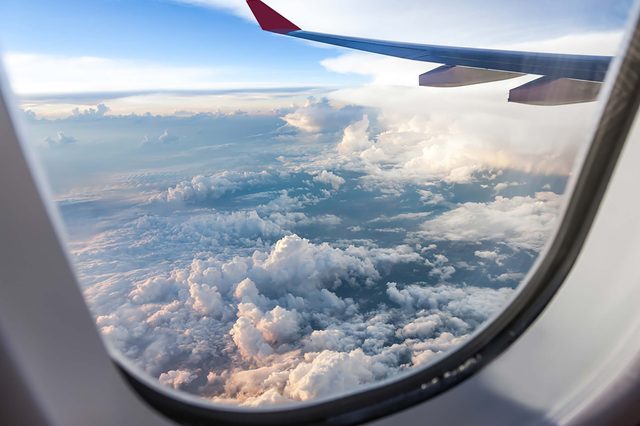
For travel plans
If you’re getting eager about a future trip and are starting to book activities, pay with credit when you can. Small, independent tour groups and other mom and pop businesses might go under before you get there if your trip is still months away, says Wilder. And if something happens and you can’t make your trip, you’ll have an easier time getting a refund if you pay with a credit card. “The merchant might not be willing to refund you all your money,” says Wilder. “With a credit card, the company will side with the consumer on that one and help you out.” Plus, here’s why you should always use these 10 credit card perks on vacation.